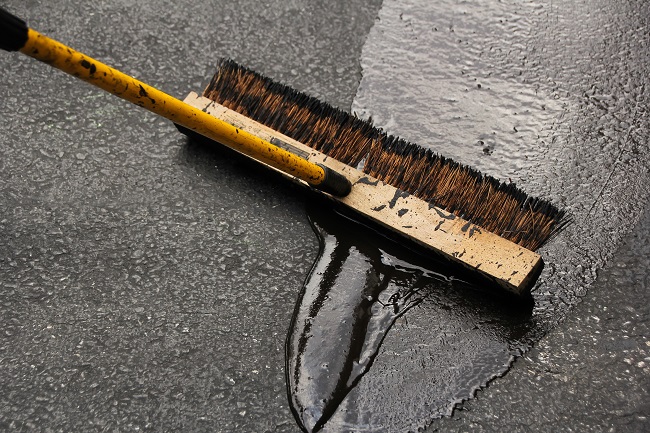With proper care, an asphalt driveway can last you 30 years or more. When it comes to value, there is no better choice. However, you don’t need to seal a new driveway. It is important to allow the asphalt to fully cure. This will mean waiting at least 3 months, weather permitting. In fact, it is not unusual to wait for between 6 to 9 months before applying a seal coat, especially if your driveway was installed in the fall. The best weather for applying seal coat is on a warm summer day, towards the evening.

The need for seal coat is mostly to protect your driveway from climate conditions such as snow, ice, and UV light. Exposure to the elements can make asphalt become brittle and break over time. Consequently, the stones and sand within the mix to become exposed, and cracks begin to form. If water gets into the cracks and then freezes, this can cause further decay. However, fresh, new asphalt is extremely elastic and can maintain that characteristic for a long while.
Nevertheless, sealing a driveway too soon can cause some problems. If the driveway is not fully cured, the sealer will lock in the hydrocarbon oils that provide asphalt its flexible quality. Consequently, the driveway becomes forever sensitive to imprints and marks, like the ones you may have seen caused by twisting tires, bicycle kickstands, and another heavy object.
When it is time, for the best results, use a coal tar driveway sealer. First, inspect for and repair all cracks and holes. There are filler kits specifically meant for asphalt driveway repair. Make sure to apply the sealer on a warm day. A large squeegee will help spread the driveway sealer evenly over the driveway. The sealer should not be too thick or you could experience eventual peeling.
What haven’t we covered yet that is important to you? If you would like to talk about seal coating your asphalt driveway, or a related topic, please contact us.
